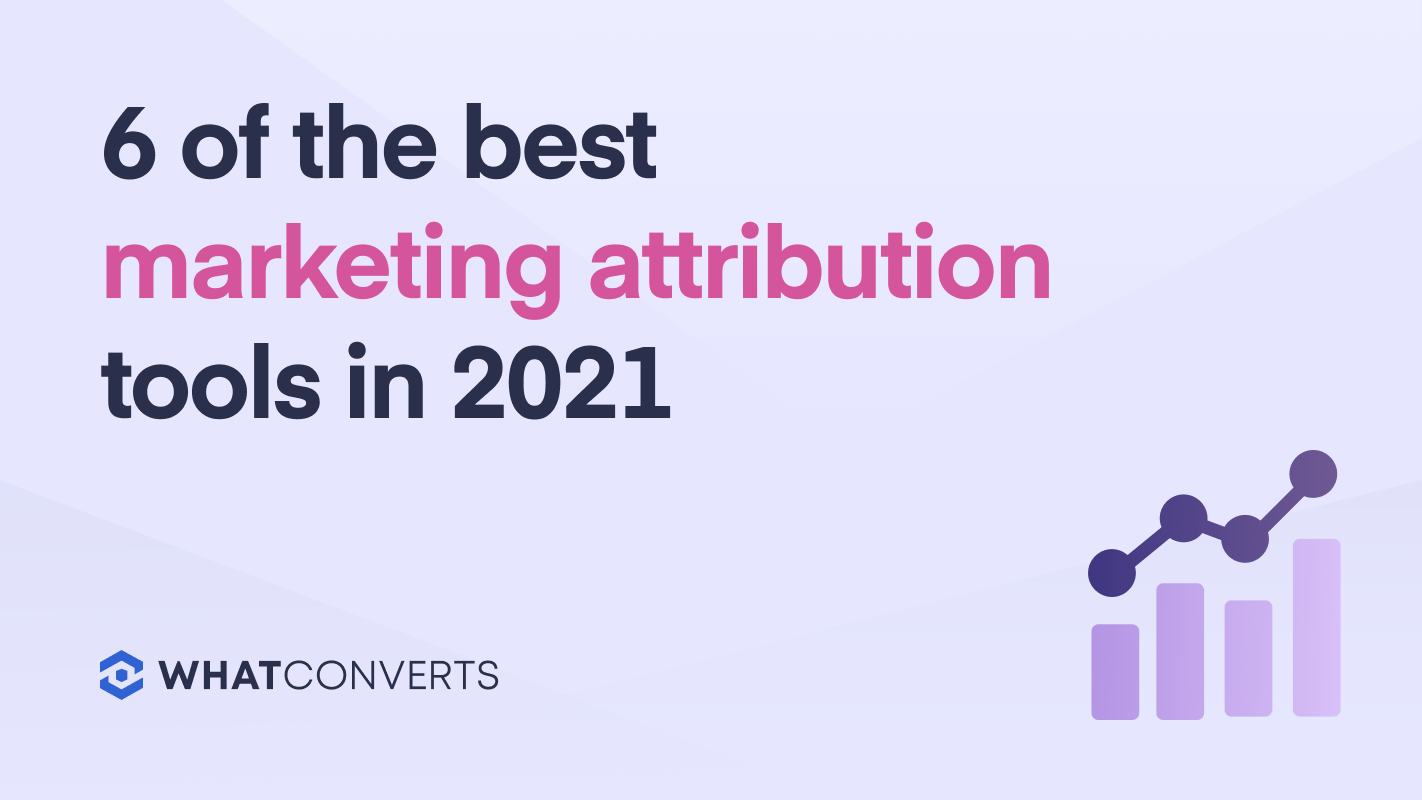Understanding which marketing efforts drive results is crucial. Marketing attribution tools help you track the customer journey and measure the effectiveness of various channels.
In today’s competitive landscape, knowing where to invest your marketing dollars can make all the difference. Marketing attribution tools offer valuable insights into how different strategies contribute to your goals. They enable you to allocate resources more effectively and optimize campaigns for better performance.
With numerous options available, finding the right tool can be overwhelming. This guide will help you navigate the best marketing attribution tools, ensuring you choose one that fits your needs. Let’s dive into the essentials and discover the top tools that can transform your marketing strategy.
Introduction To Marketing Attribution Tools
Discover the best marketing attribution tools that help track and analyze the performance of your campaigns. These tools provide insights into which strategies drive the most conversions.
Marketing attribution tools help track and analyze customer journeys. These tools identify which marketing efforts drive conversions. They assign credit to touchpoints that lead to sales. This helps marketers understand what works best. Marketing attribution tools collect data from various channels. They look at ads, emails, social media, and more. By doing this, they provide a complete picture of customer interactions. This data is then used to improve marketing strategies.Importance Of Attribution
Attribution is crucial for understanding customer behavior. It reveals how different channels contribute to success. This knowledge helps in allocating resources effectively. Without it, marketers may waste money on ineffective strategies. It also helps in measuring the effectiveness of each campaign. By knowing what works, marketers can focus on high-performing channels. This leads to better decision-making and improved results.Roi And Marketing Success
Marketing attribution tools help measure ROI accurately. They show which efforts generate the most revenue. This allows marketers to justify their spending. It also helps in optimizing future campaigns. By understanding ROI, marketers can improve their budget allocation. They can invest more in strategies that yield high returns. This leads to better financial outcomes for the business. In summary, marketing attribution tools are essential. They provide insights into customer journeys. They help in measuring ROI and improving strategies. Using these tools, marketers can achieve greater success. “`Types Of Marketing Attribution Models
Understanding the types of marketing attribution models is crucial for effective campaign analysis. These models help in assigning credit to different touchpoints in the customer journey. Let’s dive into the two main categories: Single-Touch Models and Multi-Touch Models.
Single-touch Models
Single-Touch Models attribute the entire credit to one touchpoint. The two most common single-touch models are First-Touch and Last-Touch.
First-Touch Attribution: This model gives credit to the first interaction. It emphasizes the importance of the initial touchpoint that grabbed the customer’s attention.
Last-Touch Attribution: This model assigns credit to the final interaction. It highlights the touchpoint that directly led to the conversion.
Multi-touch Models
Multi-Touch Models distribute credit across multiple touchpoints. These models recognize that a customer’s journey often involves various interactions.
Linear Attribution: This model assigns equal credit to all touchpoints. It provides a balanced view of the customer journey.
Time-Decay Attribution: This model gives more credit to recent touchpoints. It acknowledges the increasing importance of interactions closer to the conversion.
Position-Based Attribution: This model assigns 40% credit to the first and last touchpoints. The remaining 20% is distributed among the middle touchpoints.
Top Marketing Attribution Tools
Choosing the right marketing attribution tool is crucial. It helps to understand which marketing efforts drive results. Here are some top marketing attribution tools. They can give you the insights needed to make informed decisions.
Features To Look For
The best marketing attribution tools should offer clear and accurate data. They should track user journeys across multiple channels. Look for tools with easy-to-read dashboards. These should provide visual reports and insights.
Ensure the tool has customizable attribution models. This allows you to tailor the analysis to your business needs. Real-time data processing is also important. It helps to make quick decisions and adjust strategies on the go.
Integration Capabilities
Integration with other platforms is essential. The tool should seamlessly connect with your CRM, ad platforms, and analytics tools. This ensures all data is synchronized for a comprehensive view.
Look for tools that offer API access. This allows for custom integrations. Compatibility with third-party apps can enhance functionality. It ensures the tool fits well within your existing tech stack.

Credit: www.owox.com
Google Analytics Attribution
Google Analytics Attribution is a powerful tool for tracking marketing efforts. It helps businesses understand the customer journey. With this tool, you can see how different marketing channels contribute to conversions.
Key Features
Google Analytics Attribution offers several key features. One key feature is the ability to track multiple touchpoints. This helps you understand the complete customer journey. Another feature is customizable attribution models. You can choose from several models like Last Click or Linear. Additionally, it integrates seamlessly with other Google products. This makes it easier to manage your marketing data in one place.
Pros And Cons
Google Analytics Attribution has many pros. It is free to use, which is great for small businesses. It also offers detailed reports, helping you make data-driven decisions. Integration with other Google tools is another advantage.
There are some cons as well. The interface can be complex for beginners. It may take time to learn how to use all features. Also, some advanced features are limited compared to paid tools.
Hubspot Attribution Reporting
HubSpot Attribution Reporting is a critical feature for businesses aiming to understand their marketing efforts. It offers a detailed look at how different marketing channels contribute to conversions. This understanding is vital for optimizing marketing strategies and improving ROI.
Key Features
- Multi-Touch Attribution: Analyze all touchpoints in the customer journey.
- Customizable Reports: Tailor reports to meet your business needs.
- Integration: Seamless integration with other HubSpot tools.
- Data Visualization: Easy-to-understand charts and graphs.
- Revenue Attribution: Directly link marketing efforts to revenue.
Pros And Cons
| Pros | Cons |
|---|---|
|
|
HubSpot Attribution Reporting is a powerful tool. The key features include multi-touch attribution, customizable reports, and seamless integration. These features help businesses track their marketing efforts effectively.
There are several pros and cons to consider. The tool offers comprehensive data analysis, an easy-to-use interface, and customizable reports. However, it can be costly for small businesses, has a steep learning curve, and limited integration with non-HubSpot tools.
Understanding these aspects helps businesses decide if HubSpot Attribution Reporting meets their needs. It is a tool that offers insights, but it’s essential to weigh its advantages and disadvantages before making a decision.

Credit: www.whatconverts.com
Adobe Analytics
Adobe Analytics is a powerful tool for tracking user behavior and measuring marketing effectiveness. It offers deep insights into customer interactions and helps businesses make data-driven decisions. With its robust features, Adobe Analytics can enhance your marketing strategies and improve campaign performance.
Key Features
- Real-Time Data: Provides up-to-the-minute insights.
- Customizable Dashboards: Tailor your reports to fit your needs.
- Advanced Segmentation: Break down data by specific user groups.
- Attribution Modeling: Understand the impact of each touchpoint.
- Cross-Channel Tracking: Monitor interactions across multiple platforms.
- AI-Powered Insights: Use machine learning to predict trends.
Pros And Cons
| Pros | Cons |
|---|---|
| Comprehensive Data: Access detailed and granular data. | Complex Setup: Initial configuration can be challenging. |
| Scalable: Suitable for large enterprises. | Costly: Higher price point compared to other tools. |
| Real-Time Reporting: Make quick decisions with live data. | Learning Curve: Requires time to master. |
Choosing The Right Tool
Selecting the best marketing attribution tool for your business can be a challenging task. It’s essential to consider various factors to ensure you make the right choice. These factors include your specific business needs, your budget, and the tool’s features. This section will help you navigate through these considerations effectively.
Business Needs Assessment
Before selecting a marketing attribution tool, evaluate your business needs. Understand what you want to achieve with the tool. Are you looking to track customer journeys? Do you need detailed campaign insights? Or are you focused on ROI analysis?
Create a list of requirements. This will guide you in choosing a tool that aligns with your business goals. Some tools offer advanced features, while others focus on basic tracking. Ensure the tool matches your business objectives.
Budget Considerations
Your budget is a crucial factor in selecting an attribution tool. Different tools come at various price points. Some offer flexible pricing plans. Others might require a significant investment.
Consider the cost-benefit ratio. Determine if the features justify the price. Sometimes, a higher-priced tool might offer more value. Compare different tools within your budget range. Look for the one that offers the best features for your needs.
| Tool | Price Range | Key Features |
|---|---|---|
| Tool A | $100 – $200/month | Basic tracking, ROI analysis |
| Tool B | $300 – $500/month | Advanced tracking, detailed insights |
| Tool C | $600 – $1000/month | All features, 24/7 support |
Always ensure the tool fits within your budget. This will help you avoid financial strain. Also, consider long-term costs. Some tools might have hidden fees. Make sure you are aware of all costs before making a decision.
Implementing Attribution Tools
Implementing attribution tools can transform your marketing strategy. They help you understand which channels drive conversions. This insight allows you to allocate your budget effectively. Below, we explore the steps for implementing these tools.
Setting Up
Setting up attribution tools starts with choosing the right software. Pick a tool that fits your business size and goals. Begin with a clear plan. Identify the key metrics you want to track. Install tracking pixels on your website. These pixels collect data on user interactions. Ensure your team knows how to use the software.
Best Practices
Follow best practices to get the most from your attribution tools. Regularly review and clean your data. Accurate data leads to better insights. Use multi-touch attribution models. They give credit to multiple touchpoints in the customer journey. This approach provides a complete view of what influences your customers. Test different attribution models. See which one aligns best with your goals. Continuously optimize your campaigns based on insights. This will help you improve performance over time.
Measuring Success
In the world of marketing, measuring success is crucial. It helps businesses understand the effectiveness of their campaigns. Without proper measurement, efforts can go to waste. This is where marketing attribution tools come into play. These tools track and analyze the journey of customers. They provide insights into which channels drive the most conversions. Let’s explore how these tools help in measuring success.
Analyzing Data
Data analysis is the backbone of measuring success. Marketing attribution tools collect data from various sources. They compile this data into comprehensive reports. These reports show customer interactions across different channels. They help marketers see which campaigns are performing well. This information is vital for making informed decisions.
Optimizing Campaigns
Optimization is key to improving marketing efforts. Attribution tools help identify areas needing improvement. They highlight underperforming channels and tactics. Marketers can then adjust strategies to enhance performance. This continuous optimization leads to better results. Efficient campaigns mean higher return on investment. Marketing attribution tools make this process easier and more effective.
Future Of Marketing Attribution
The future of marketing attribution holds great promise. Businesses seek to understand the customer journey better. This helps them make informed decisions. The landscape is shifting rapidly. Innovations and emerging trends are redefining the way we approach attribution.
Trends To Watch
One significant trend is the integration of AI in attribution models. AI can analyze vast amounts of data. This provides deeper insights into customer behavior. Another trend is the rise of multi-touch attribution. It acknowledges that customers interact with multiple touchpoints. This gives a clearer picture of the conversion path.
Privacy concerns are also influencing attribution methods. With stricter data regulations, companies are adapting. They focus on privacy-friendly ways to track and attribute conversions. First-party data is becoming more valuable.
Emerging Technologies
Blockchain technology offers new possibilities for marketing attribution. It ensures transparency and accuracy in tracking. This builds trust between brands and their customers. Machine learning is another emerging technology. It helps in predictive analytics. Marketers can forecast future trends and adjust strategies accordingly.
Cloud computing is also playing a crucial role. It allows for real-time data processing. This enables marketers to make timely decisions. The use of customer data platforms (CDPs) is on the rise. They unify data from various sources. This provides a holistic view of the customer journey.

Credit: matomo.org
Frequently Asked Questions
What Are Marketing Attribution Tools?
Marketing attribution tools help track and analyze the impact of marketing efforts. They determine which channels and campaigns drive conversions and sales.
Why Use Marketing Attribution Tools?
Using marketing attribution tools helps optimize marketing strategies. They provide insights into customer journeys, improving ROI and decision-making.
How Do Marketing Attribution Tools Work?
Marketing attribution tools collect data from various touchpoints. They attribute credit to specific channels, helping understand the effectiveness of each marketing effort.
What Are The Benefits Of Marketing Attribution Tools?
Marketing attribution tools improve budget allocation and campaign performance. They provide a clear view of customer journeys and enhance marketing strategies.
Conclusion
Selecting the right marketing attribution tool is crucial for success. It helps understand your campaign’s impact. Your choice can enhance decision-making. Accurate data leads to better strategies. Invest in a tool that fits your needs. Explore the options mentioned. They offer unique features and benefits.
Make a smart decision today. Boost your marketing efforts with the right tool. Your business deserves the best insights.
